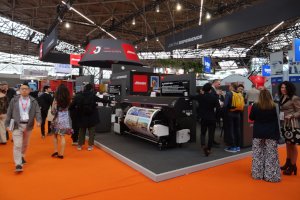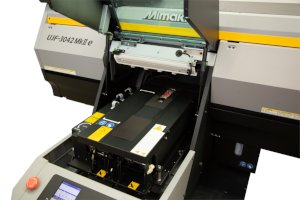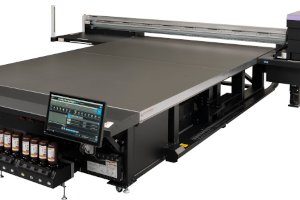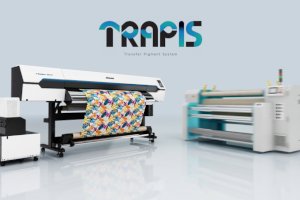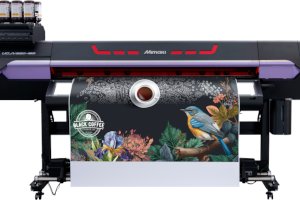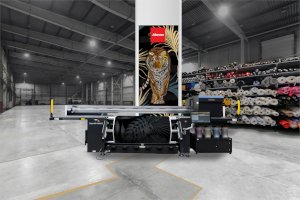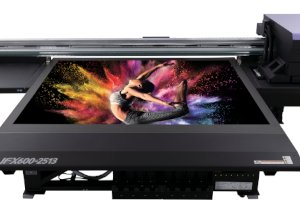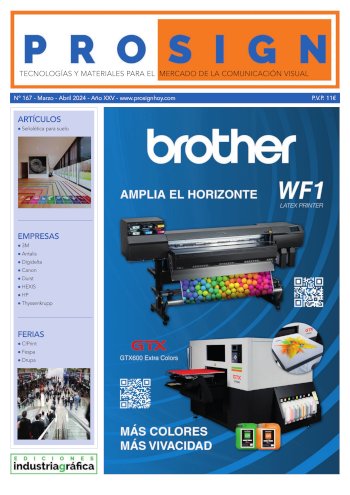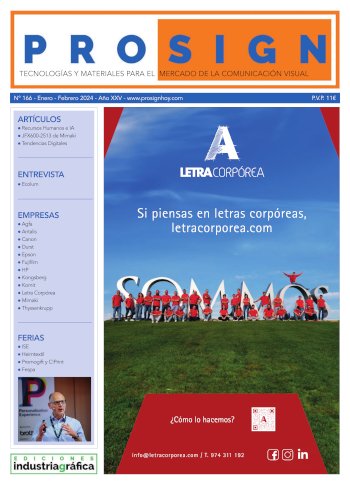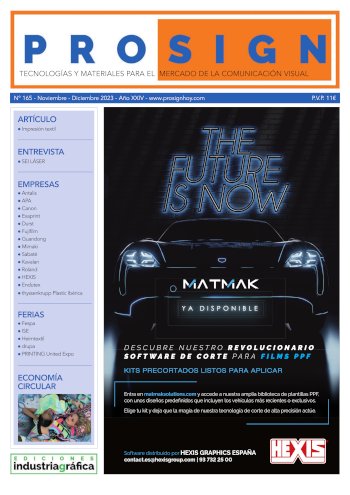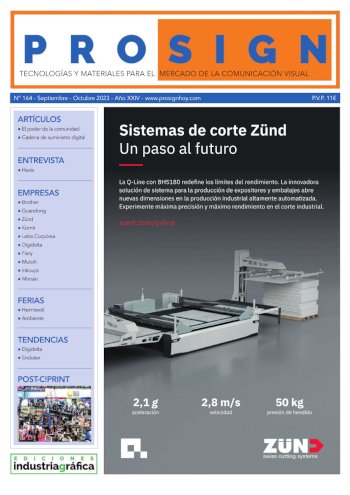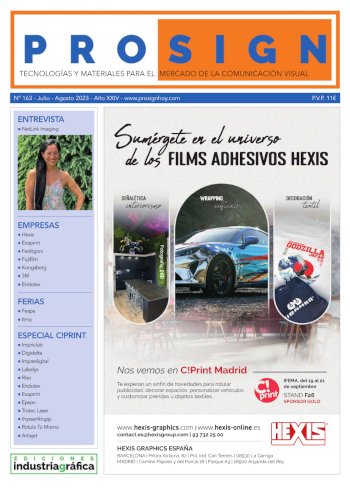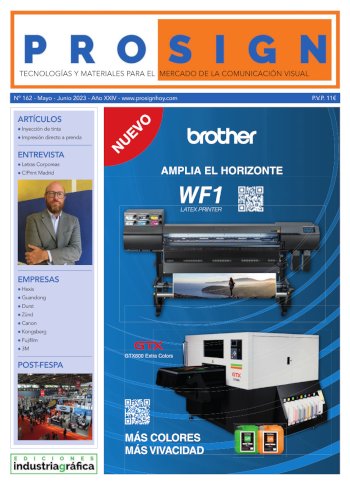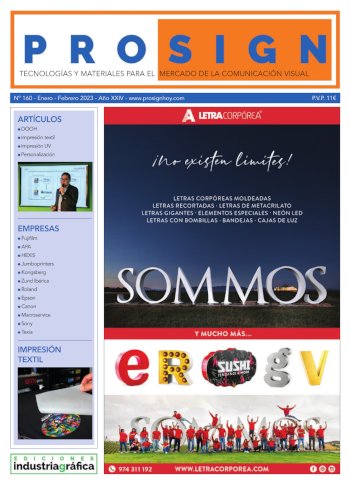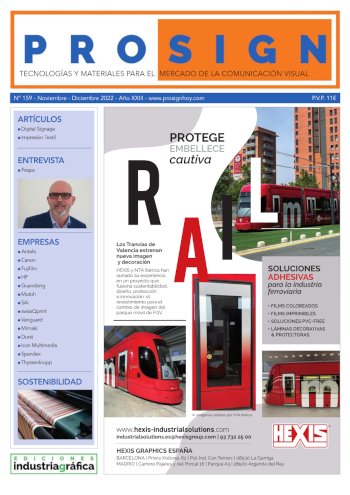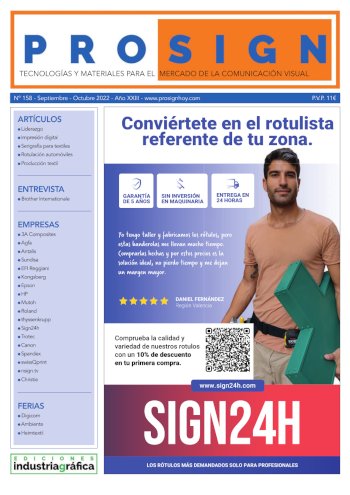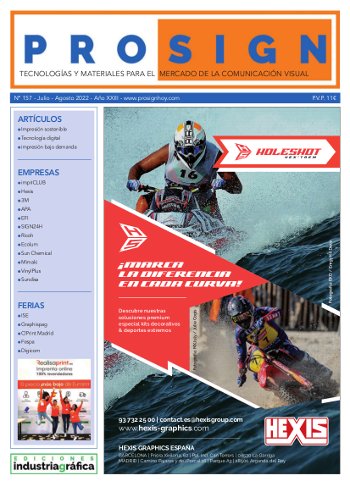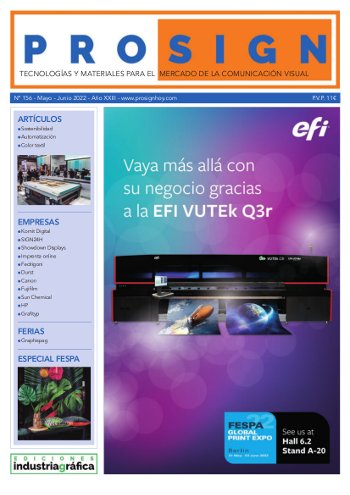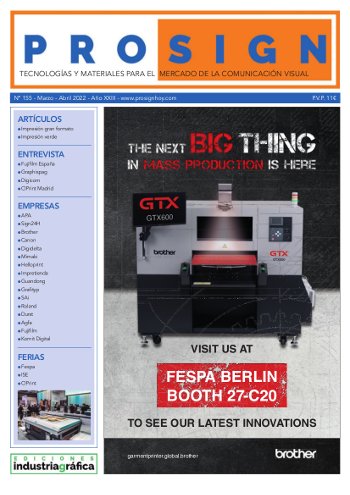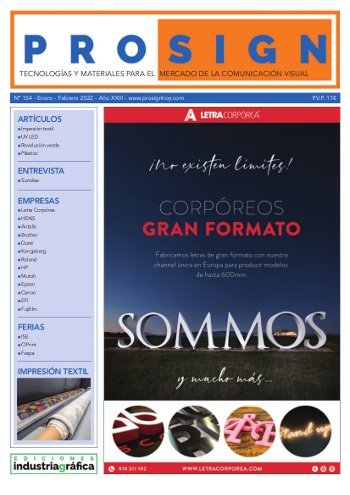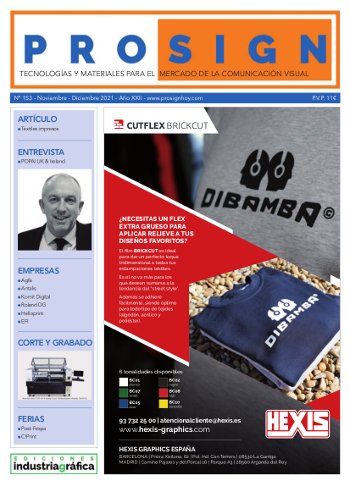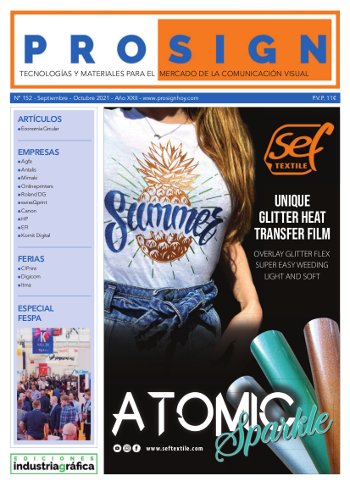Transforming Textiles: Dino Zoli Textile’s Journey with Mimaki
- Publicado el 04 de Diciembre de 2023
Dino Zoli Textile is a well-established Italian company specialising in the production and supply of a broad range of textile products. With a successful history of over 50 years, they have been at the forefront of innovation, continually meeting the evolving demands of their diverse client base. Their partnership with Mimaki, a leading manufacturer of wide-format inkjet printers, has allowed them to expand their product offerings and increase customisation, driving their success in an ever-competitive market.
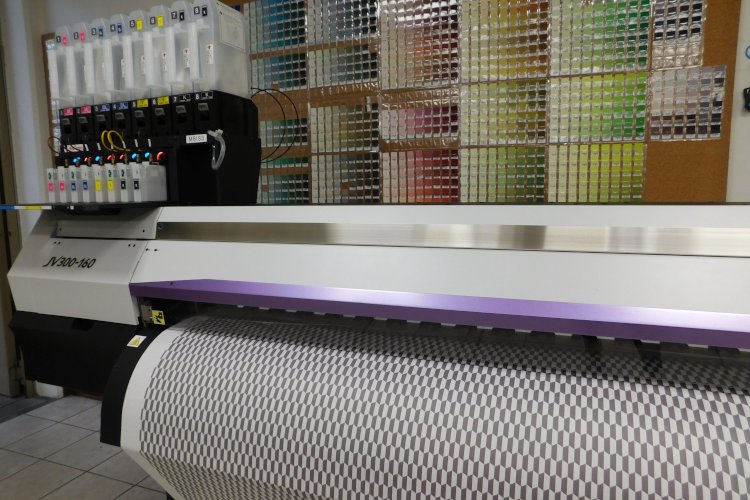
Founded in 1972, Dino Zoli Textile started as a furniture wholesaler in the Pesaro and Forlì area. Their initial offerings included more than just fabric for upholstered furniture. They supplied everything the local furniture industry needed, from armchair feet to quilted velvet and even cardboard products for templates.
However, in the late 1980s, DinoZoli Textile made a strategic shift and decided to focus exclusively on producing and supplying fabric, leading to its current pure textiles specialisation. The company's continuous efforts to stay ahead of trends saw them capitalising on microfibre, a cost-effective alternative to Alcantara, which was gaining recognition in the industry. Today, they continue to offer microfibre along with traditional natural and synthetic textiles. Dino Zoli Textile is known for its proactive approach in finding and creating innovative products, manufacturing unique hybrid recycled leather and eco-leather products.
“According to the recent report "The future of Home 2030," the trends to watch out for in furniture, at least for the next decade, will all gravitate around the concept of the home-island: the home will increasingly become a multifunctional place in which to relax, play sports, read and enjoy infotainment, but also work. Increasingly furniture made of antibacterial materials, such as copper and cork, will be in demand — we see huge opportunity for continued innovation,” explained Marco Zoli, CEO at Dino Zoli Textile.
In an effort to cater to a diverse array of projects, Dino Zoli Textile established in-house design and production divisions. This setup allows them to deliver tailor-made services, ranging from contractual to off-the-shelf offerings. To further their commitment to customisation, Dino Zoli Textile invested in Mimaki printers, beginning with the JV300-160. This move allowed them to offer enhanced customisation for their collections and specific design requests from architectural firms. The plotters have expanded Dino Zoli's service offerings, significantly broadening their customer base.
Initially, the plotters were used for transfer printing, primarily for synthetic fabrics. However, Dino Zoli Textile later transitioned to direct printing using pigment inks for natural materials. Dino Zoli expanded their capacity with the addition of Tx300P-1800B and Tx300P-1800 MkII systems. Featuring a belt system enabling to print with high quality and precision even on more complex fabrics with low tensile stability, the Tx300P-1800B proved to be an ideal solution to further enhance Dino Zoli Texile's know-how and R&D activities. Equally strategic, the Tx300P-1800 MkII printer is capable of both direct-to-textile and transfer printing, making it very useful for companies looking to drive innovative applications. Its interchangeable print platen and three different dual ink combinations lend it unprecedented flexibility within a single system, enabling Dino Zoli Textile to push the boundaries of textile design and production.
This innovation from Mimaki has allowed Dino Zoli to reap the benefits of digital print technology, which includes more cost-effective short runs and faster turnarounds. These advantages, which are not achievable with traditional analogue print methods, have transformed the way Dino Zoli operates. The technology has proven especially useful for sampling, allowing the company to trial new ideas and products with lower financial risk.
The Mimaki Tx300P-1800 MkII's versatility extends beyond its printing capabilities. It can handle an impressive range of fabrics, thanks to its design as a hybrid printer. Whether Dino Zoli is producing synthetic textiles or working with natural fibres, the Mimaki Tx300P-1800 MkII rises to the occasion, producing high-quality prints every time.
Furthermore, the Mimaki Tx300P-1800 MkII stands alone in the textile printing market with its unique ability to switch from direct printing to sublimation paper printing. By installing an easy-to-click vacuum platen, Dino Zoli can adapt its printing method according to the task at hand, giving it an edge over competitors.
Despite its high-performance capabilities, the Mimaki Tx300P-1800 MkII remains user-friendly, featuring a high head gap for accurate dot placement, even when operating at a higher print head gap. This function, designed for a broad range of materials and applications, allows Dino Zoli to produce an array of products, from fashion apparel and interior fabrics to sports apparel and soft signage. This wide production range ensures the company can cater to diverse customer needs, enhancing its reputation as a one-stop textile solution.
While this investment was timely, the onset of the COVID-19 pandemic resulted in this proposal remaining a niche offering due to difficult trading conditions. Despite these challenges, Dino Zoli Textile continues to innovate and expand its offerings. The company keeps turning its radars toward technology innovations that can enable them to cater to even more diverse customer needs.
The company has not stood still on the investment front either: the management recently decided to install a new printer from Mimaki. Working alongside the JV300-160, the TS330-1600, a dye-sublimation inkjet printer, has been chosen with the aim of helping increase productivity with the high-quality standards Dino Zoli Textile has been renowned for since its outset.
Beyond upholstered furniture (their core business), Dino Zoli Textile collaborates with architectural firms to provide turnkey solutions for hotels, restaurants, and public places. Their client base includes furniture manufacturers, upholsterers for household accessories to bed frames, cushion makers, and architectural and design studios.
Dino Zoli Textile’s commitment to innovation is evident in their allocation of resources, with nearly 30% of their turnover invested in research and development. These investments have resulted in products like soundproof panels that can be printed in-house. Their distributors have found success in proposing these products from recent trade fairs. Moreover, their commitment to sustainability is seen across the company’s operations.
Marco Zoli, owner at Dino Zoli Textile commented: “We use water-based pigment inks because in our policy there is and always will be more environmental awareness. We have come out this year with a GRS (Global Recycle Standard)-certified product, which we have chosen to produce in the microfibre area, since we are very well known for microfibre at an international level. We were the first company to produce a fully GRS-certified product using recycled polyester. From this starting point, we expect 90% of our future products to adhere to these environmental standards, because we are strongly oriented towards the use of recycled fibres and we are also trying to get to the certification of total recyclability of the product to fully close the circle.”
In its five decades of operation, Dino Zoli Textile has proven its resilience and capability to adapt and innovate. Despite the challenges brought on by the global pandemic, they remain steadfast, maintaining their sales network and receiving positive feedback from the last three important trade events they attended. The company’s commitment to human relationships and product reliability, coupled with the power of Mimaki’s technology, position them for continued success in the textile industry.


